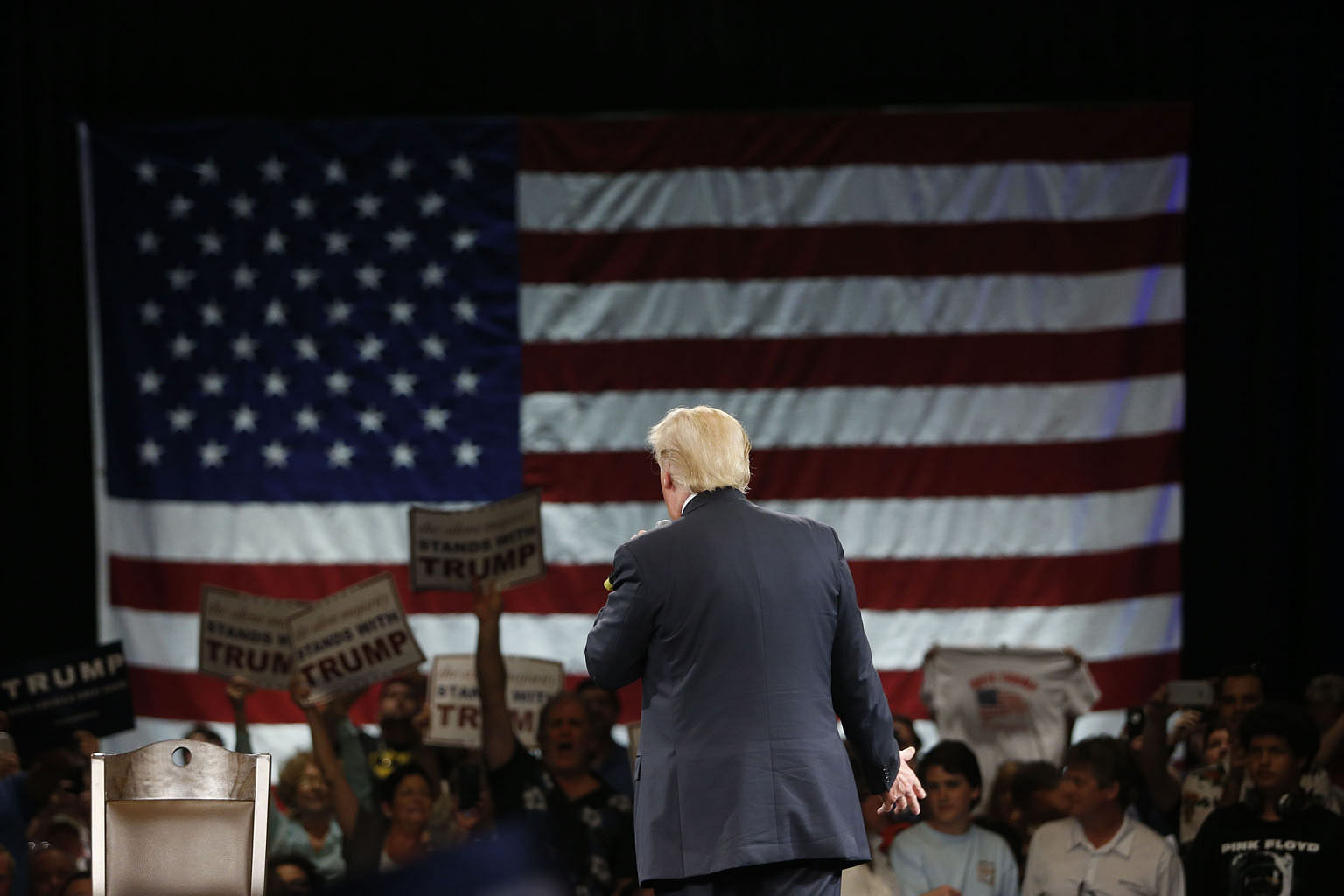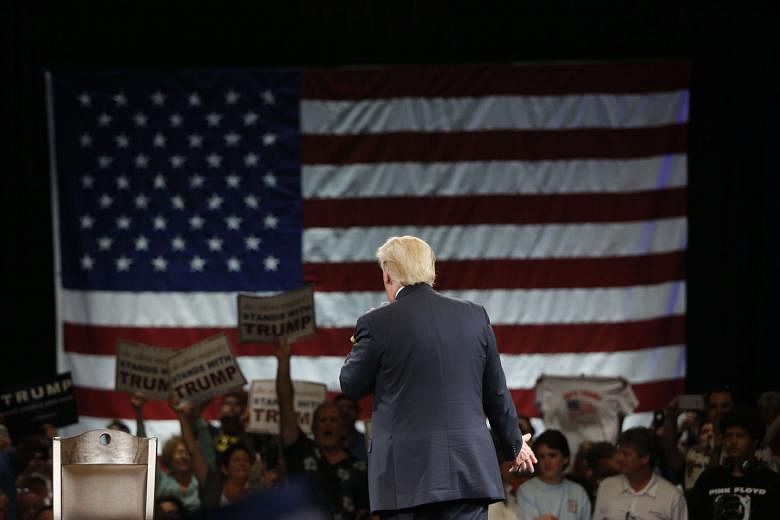Donald Trump continued his march towards securing the US Republican presidential nomination on Tuesday, when he scored victories in four major US states, including Florida. One of Mr Trump's main opponents, Senator Marco Rubio, dropped out of the race due to his poor showing.
As the billionaire businessman was celebrating his latest victories, exit polls of voters in the five states that held elections on Tuesday revealed a remarkable fact: Two-thirds of Republican voters support Mr Trump's proposal to ban Muslim immigrants and tourists from entering the United States. In December, Mr Trump shocked the world when he called for the ban on all Muslims travellers - until American leaders "can figure out what the hell is going on".
Some experts and politicians thought that the idea would turn voters away from Mr Trump, and his anti-Muslim rhetoric has become even more divisive over the past few months. In an interview with CNN's Anderson Cooper on March 9, Mr Trump declared flatly: "I think Islam hates us." When Mr Cooper asked him whether the religion is at war with the West, Mr Trump added, "There's a tremendous hatred. We have to get to the bottom of it. There's an unbelievable hatred of us."
Clearly, Mr Trump is fanning the flames of anti-Muslim sentiment in the US, but he did not create this phenomenon. He is a demagogue who is taking advantage of deep-seated fears of Muslims among Americans, especially members of the Republican Party. As the exit polling in this week's elections showed, he is winning votes because he is willing to go further than any other candidate in tarnishing all Muslims.
A day after his CNN interview, the moderator of the Republican presidential debate asked Mr Trump to clarify his comments: "Did you mean all 1.6 billion Muslims?"
"I mean a lot of them," Mr Trump responded, eliciting cheers from the crowd. "And I will stick with exactly what I said to Anderson Cooper."

Given several chances by his interviewers to distinguish between Islamic militants and the majority of the world's Muslims, Mr Trump refused to make that distinction and instead continued to tarnish an entire religion.
Similarly, Mr Trump has not wavered from his proposal to ban Muslims from entering the US, saying it would not apply to American citizens and would be a "temporary measure" in response to the threat of attacks from jihadist groups like the Islamic State in Iraq and Syria (ISIS). He invoked one of America's darkest periods: president Franklin D. Roosevelt's decision during World War II to classify more than 100,000 Japanese, German and Italian immigrants as "enemy aliens". That decision paved the way for the internment of tens of thousands of non-citizens and US citizens of Japanese descent.
Mr Trump's proposal and rhetoric are part of a growing undercurrent of Islamophobia that is making life difficult for the approximately three million Muslims in the US. Hate crimes against Muslim Americans have increased since the November terrorist attacks in Paris and the December massacre in San Bernardino, California, which were both claimed by ISIS.
The stereotypes and xenophobia perpetuated by Mr Trump and other demagogues have more subtle effects than outright violence. They shape a social climate in which most Muslims and Arabs are treated as potential terrorists.
On Nov 17, four days after the Paris attacks, a community meeting over plans for a new mosque in the state of Virginia turned into a frightening example of the anti-Muslim sentiment sweeping parts of the US. Mr Samer Shalaby, an engineer and mosque trustee who was trying to explain the building plans, was heckled and shouted down by audience members.
"Nobody, nobody, nobody wants your evil cult in this county," one man shouted while pointing his finger at Mr Shalaby, as others in the audience clapped and cheered. "I will do everything in my power to make sure that this does not happen," the heckler, who identified himself as a former US marine, continued. "Because you are terrorists. Every one of you are terrorists. I don't care what you say. I don't care what you think."
Later, the man added, to cheers from the crowd: "Every Muslim is a terrorist, period. Shut your mouth."
One US poll released in September found that more than half of Americans - and 83 per cent of Republicans - believe that Muslims should be barred from seeking the presidency. Another poll in November found that 56 per cent of Americans view Islam as at "odds with American values and way of life".
One irony is that many Muslims around the world want to foster a better relationship with the US and the West. In one long-term poll, conducted from 2006 to 2010, residents of 39 majority-Muslim countries were asked whether they supported greater interaction with the West. A majority of people in 38 of the countries surveyed viewed closer relationships as a benefit, rather than a harm. Other surveys conducted by the Pew Research Centre have shown that a majority of Muslims around the world reject terrorist tactics such as suicide bombing or other attacks on civilians.
But this research carries little weight with many Republicans in the US, especially Mr Trump's supporters. In January, a poll conducted by Pew found that 65 per cent of Republicans want politicians to express "blunt talk" about Islam, even if such talk includes blanket criticism of the faith.
While the rest of the world is shocked by Mr Trump's declaration that "Islam hates us", his blunt talk resonates with many Republican voters. And it is a major reason that Mr Trump is on his way to securing the party's presidential nomination - a victory partly built on the demonisation of Islam.
- The writer is a journalism professor at New York University and a former Middle East bureau chief at Newsday.

